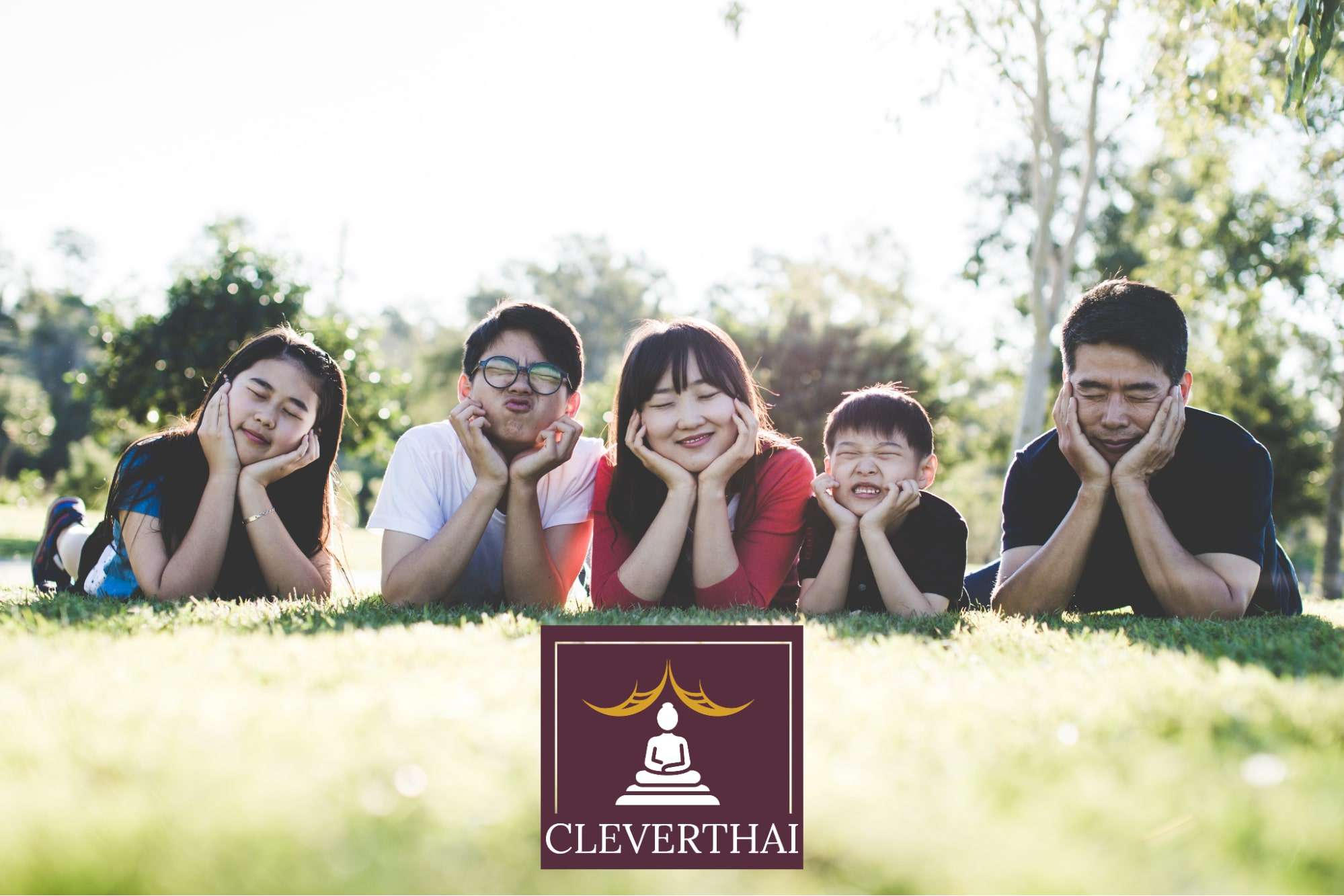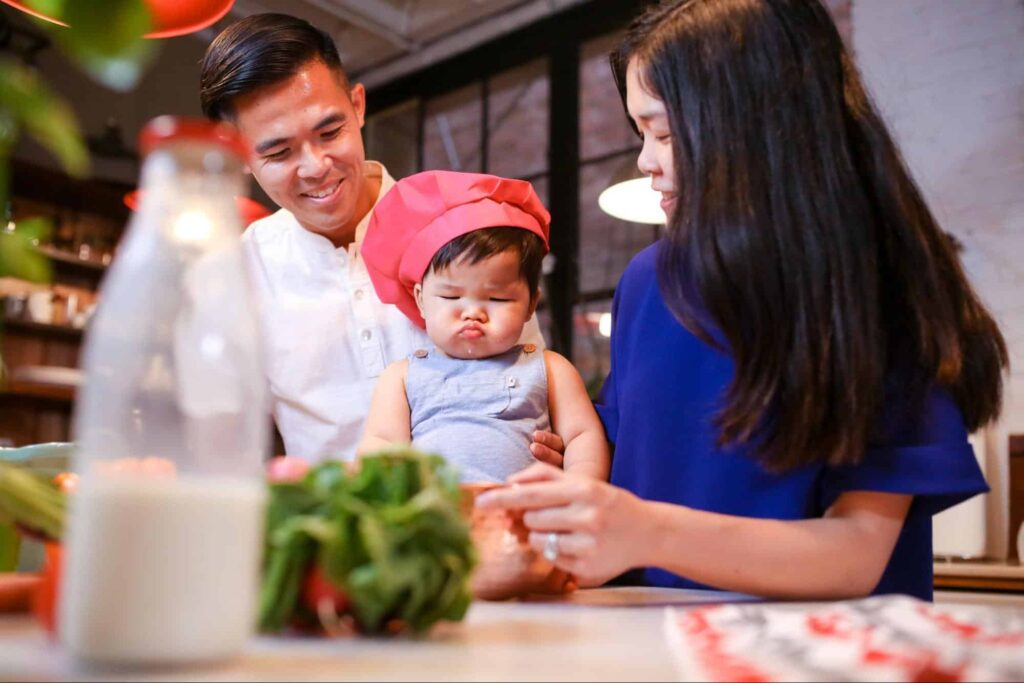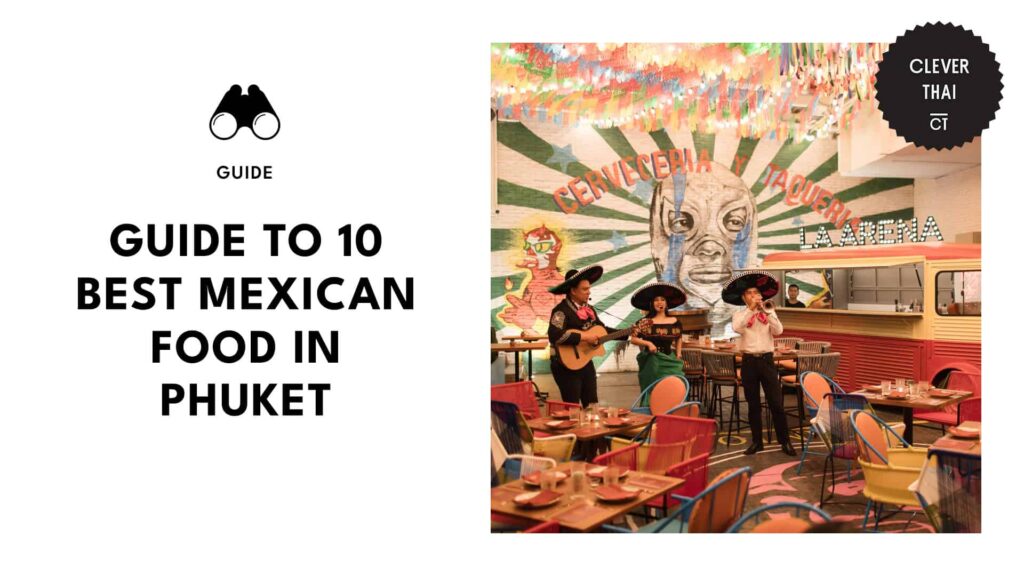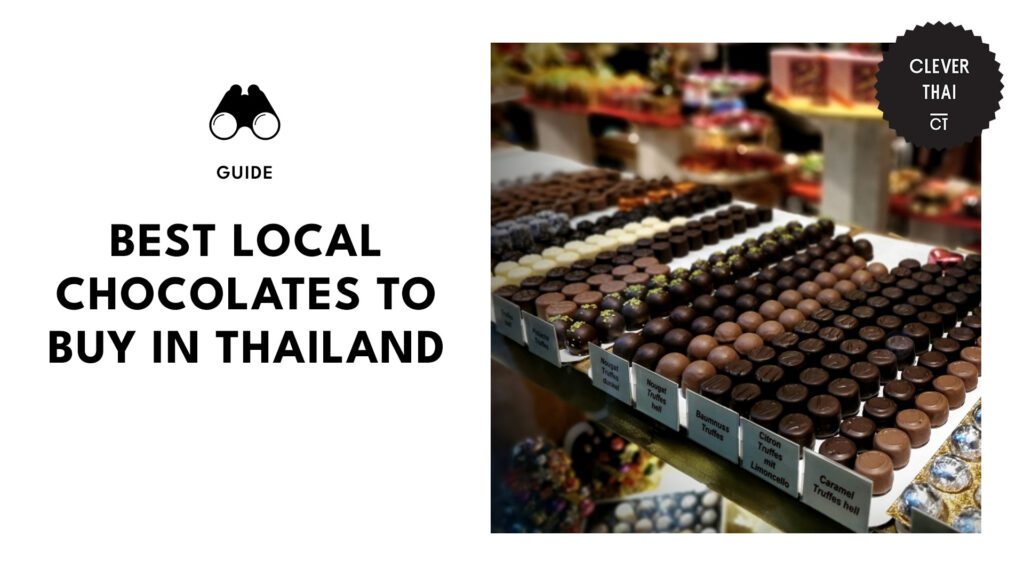Categories > Guides and Tips

How important is family for the Thais?
- How a Typical Thai Family Looks Like
- Family Dynamics
- Honorifics
- How Thai Families Live
- Influences of Thai Family Culture
- Theravada Buddhism
- Namjai and the Never Mind Mentality
- What makes Thai family culture special?
- Matrilocal Residency
- Focus on the Youngest Daughter
- The Future of the Thai Family
- FAQs on Thai Families and Culture
Thailand is a beautiful melting pot of different local and international cultures. This is mainly due to the country’s history of embracing foreign influence in order to thrive during its interactions with colonial powers throughout the last century.
With history and cultural influences in mind, anyone could wonder how vital now is the family for a typical Thai person.
The family is very important for the Thais for they are expected to honour and respect family for a good life. A great display of this can be seen in 33.6% of Thai families with three generations living under one roof, as per UN data in 2015.
Read on as we take a look at Thailand’s family culture, its influences, the nuances that make it unique, and even a bit about its future.
How a Typical Thai Family Looks Like
A typical Thai family looks like any other average family you’ll find in any other country.
It consists of the parents, the children, and sometimes even the grandparents and great-grandchildren. The typical Thai family has a three to four-generation setup.
However, family dynamics and hierarchy make a Thai family quite unique.
Family Dynamics

Thai families are patriarchal. It means that the father is the head of the family and the one who makes the most important decisions in it.
When paired with the wife, the spouses (as parents) also greatly influence their children’s lives.
Parents can either have an authoritarian or an authoritative approach to parenting. This means they can be as controlling in every aspect of their child’s life and decisions or be more open and flexible to their child’s opinions and wants, but with boundaries.
Authoritarian parents could be very critical of a child’s chosen job. They may even take extreme measures to pressure the child to choose a particular career path for economic or social reasons.
On the other hand, authoritative parents could be open-minded and accepting of their child’s decisions, say, the choice of spouse. This is greatly seen in the consent given to interracial or interfaith marriages.
Grandparents may not be as influential as the parents in a family unit. However, they are still highly respected by both the parents (their child and child-in-law), and their grandchildren for their age and wisdom.
The children are always expected to respect and honour their elders and parents. We’ll discuss how this is usually done – using honorifics.
Honorifics
The use of honorifics is prominent in Thailand. Like its Asian neighbours, Thais use honorifics when referring to kinship or familial relations.
The father is called by his children “phâaw” (formal) or “bpá-bpǎa” (informal). On the other hand, the mother is called “mâae” (formal) or “màa-máa”, “màa-míi,” and even just “máa” (informal).
Grandfather is called “bpùu,” while grandma is called “dtaa.”
Meanwhile, honorifics for children are dependent on the order of their birth.
An older brother is referred to as “phîi chaai,” while an older sister is called “phîi sǎao.” Meanwhile, a younger brother is called “náawng chaai,” and a younger sister is called “náawng sǎao.”
However, when an adult is talking to the children, they can simply use “phîi” and “náawng” (“brother” and “sister,” respectively) and affix the child’s name after it.
You can learn more about how to correctly pronounce these honorifics in this video from ThaiPod101 below:
How Thai Families Live

A typical Thai household has a central family (the parents and their children) living under one roof. This is the setup one would commonly see in Bangkok.
However, family units are becoming multi-generational, as including the grandparents in the home is now present in at least 33.6% of Thai households nationwide.
This trend is expected to continue as the elderly population of Thailand is increasing, according to the United Nations Population Fund (UNFPA) in 2015.
In addition, sending one’s grandparents to a nursing home has long been an unpopular choice for Thai families.
Thais are more likely to hire nannies and caregivers for extra helping hands in senior care or maids for cleaning services and general household help, instead of availing of nursing home services.
Most families will take care of their elderly at home until the end; this task usually falls to the youngest daughter.
These aspects of familial life show how the family is significant to the Thais. Supporting one’s kin until old age is expected and considered a noble practice.
Influences of Thai Family Culture
I bet you’re thinking that Thai family culture must have been based on specific rules or history. You’re not entirely wrong—let’s take a look at its most significant influences.
Theravada Buddhism
The country’s biggest religion, Theravada Buddhism, is the most significant influence on Thai family culture.
As one of the three main types of Buddhism, it can relate to the family culture, focusing on maintaining a hierarchical order.
As previously mentioned, giving honour and respect to those who are ranked higher in society, like, one’s parents and grandparents (and even the Thai Royal Family), with the use of honorifics, are essential. This helps in sustaining harmony in a Thai family.
Namjai and the Never Mind Mentality
Other Thai values that affect family culture are the notion of “namjai” (lit. “water from the heart”) and “mai pen rai” (“never mind”, “it’s okay, it doesn’t matter”).
“Namjai” is doing generous or kind acts without expecting anything in return. This altruistic value complements the need to honour one’s older family members and even make personal sacrifices for the whole family’s good.
On the other hand, saying “Mai pen rai” can easily be described as the Thai notion of not making a big deal of stuff.
In a family context, it transforms into a way of not stirring unpleasant emotions or conflict between the older and younger members. This is usually seen in instances when the elderly family member’s opinion differs from that of the younger one.
For example, a child might not directly argue or question their parent’s opinion on their career out of respect but will resort to other indirect ways to change their opinion.
What makes Thai family culture special?
Respect and honour for one’s family are common, even for families abroad. Here are two aspects of Thai family culture that are unique and set it apart from others.
Matrilocal Residency
The most extreme difference between Thai and Western family culture is in residency or where a family lives. In the West, it is a custom for the husband to create a separate, new dwelling with the wife after marrying.
Newly-married couples in urban areas like Bangkok typically start their family home this way, in a home separate from their in-laws or parents.
However, although Thailand’s culture is becoming more globalised as ever as we speak, certain aspects remain pretty much traditional, especially with families in rural areas and provinces.
Starting on “new grounds” in rural areas by buying or renting a new home is usually out of the plan post-wedding.
Instead, married daughters of Thai families in the countryside tend to stay and build their own families in their childhood homes. The husband is expected to move in with his wife’s family, not the other way around.
This phenomenon is called a matrilocal residency, and as previously mentioned, even urban families are changing and starting to adopt this setup as well.
Focus on the Youngest Daughter
One would initially think that being the youngest female child in a Thai family makes one’s familial role somewhat unimportant. However, certain things make being the youngest daughter actually vital and quite challenging.
As mentioned, daughters in Thai families, especially in rural areas, mostly end up in or near their childhood homes after marriage.
As a Thai family ages and grows, the task of taking care of elderly members like grandparents and one’s parents will ultimately fall into the hands of the youngest daughter.
In this light, it’s not surprising that Thai inheritance laws favour female children in that they, not the male children, get to inherit their childhood home from their parents.
Thus, the youngest daughters not only have the burden of taking care of elderly family members but also of sorting out the family’s estate with the help of lawyers after their senior loved ones’ demise.
The Future of the Thai Family
Thai family culture and values are continually changing due to the influence of other cultures and social and economic events.
For one, the full effect of divorce on the Thai family is something yet to be fully determined.
In 2017, the Thai government announced that 39% of marriages in Thailand end in divorce. This alarming number is expected to increase in the coming years.
It’s been seen that divorce has profound adverse effects on a child’s social and economic well-being. According to a study, the stress of the preparation for divorce proceedings and the changes in family dynamics affects children the most.
But more studies are needed to fully determine the long-term effects of divorce in Thai families, even if the legal procedure has been in place since 1935.





